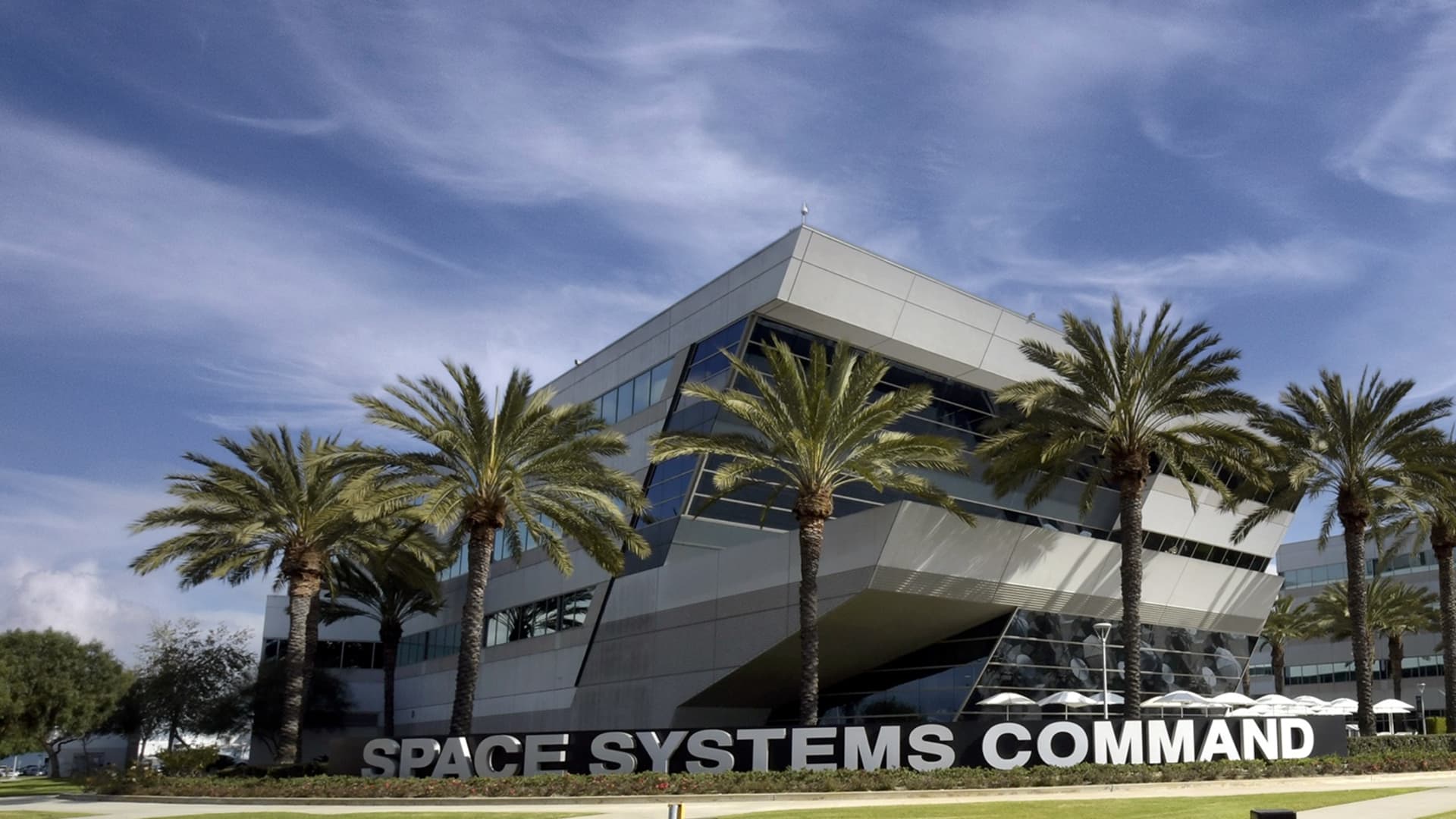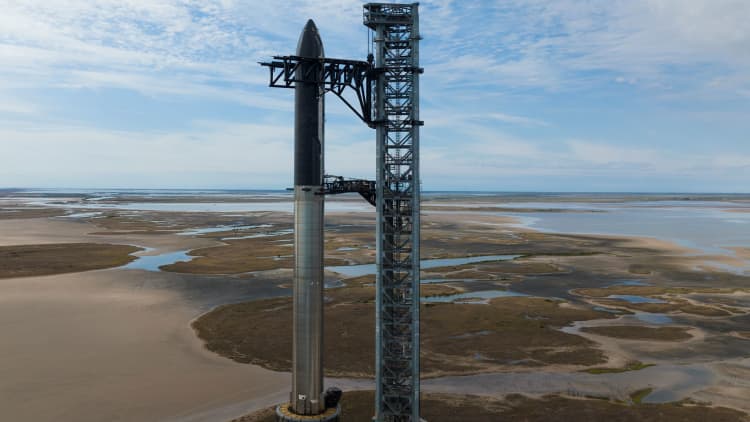
The headquarters of Space Systems Command in Los Angeles, California.
U.S. Space Force / Jose Lou Hernandez
The U.S. military is preparing to buy another round of rocket launches from companies next year, and Space Force leadership says they’re taking a new “mutual fund approach” to the acquisition strategy.
“As opposed to picking a single stock, we pick two different approaches, because we thought that would best allow the government to pivot,” said Colonel Chad Melone, the chief of the U.S. Space Force’s Space Systems Command’s Launch Procurement & Integration division, in a press briefing on Friday.
Earlier this month the Space Force kicked off the process to buy five years worth of launches, under a lucrative program known as National Security Space Launch Phase 3. In 2020, the second phase of NSSL awarded contracts to two companies – Elon Musk’s SpaceX and United Launch Alliance, the joint venture of Boeing and Lockheed Martin – for about 40 military missions, worth about $1 billion per year.
Source: Space X; Red Huber | Orlando Sentinel | TNS | Getty Images
But, with a number of companies bringing rockets to market, Space Force is splitting NSSL Phase 3 into two groups for about 70 launches. Lane 1 is the new tack, about 30 missions with lower requirements and a more flexible bidding process that allows companies to compete for launches as rockets debut over the coming years. Lane 2 represents the legacy approach, with the Space Force planning to select two companies for about 40 missions that have the most demanding requirements.
“Several factors have strongly influenced our strategy, most notably the ever growing commercial launch market, [and] the greater than 50% increase in national security space missions over what we had in Phase 2,” Colonel Doug Pentecost, the Space Systems Command’s deputy program executive officer, told press.
Sign up here to receive weekly editions of CNBC’s Investing in Space newsletter.
Space Force leadership named several companies that can now compete in the dual-track process, including Rocket Lab, Relativity and ABL Space. Pentecost also noted that, a “couple months ago,” Space Systems Command signed a certification plan with Jeff Bezos’ Blue Origin for its New Glenn rocket, with the company aiming to prove it can fly national security missions after three launches.
Pentecost emphasized the cost savings behind the competitive approach of buying launches. For the most powerful rockets, Pentecost said SpaceX’s Falcon Heavy and ULA’s Vulcan rockets “are about half the cost” of what the prior decade’s Delta IV Heavy rockets cost, savings of “almost 50%” for the military to put “the biggest satellites into space.”
“We are saving a ton of money on the high end, while we’re still managing to utilize the commercialized prices on the low end,” Pentecost said.
Separately, Space Force is closely watching the growing demand for commercial launches. Melone said non-military satellite missions would need to be “on the extremely high side” of current projections to limit Space Force’s plans, either through the availability of launch ranges or companies’ production capacity.
Already, companies are hitting unprecedented annual launch rates. Space Force projects its Eastern Range in Florida will see 92 launches in 2023, up from 57 in 2022, and its Western Range in California will have 42 launches in 2023, up from 19.








